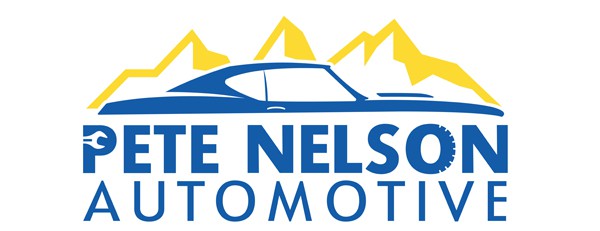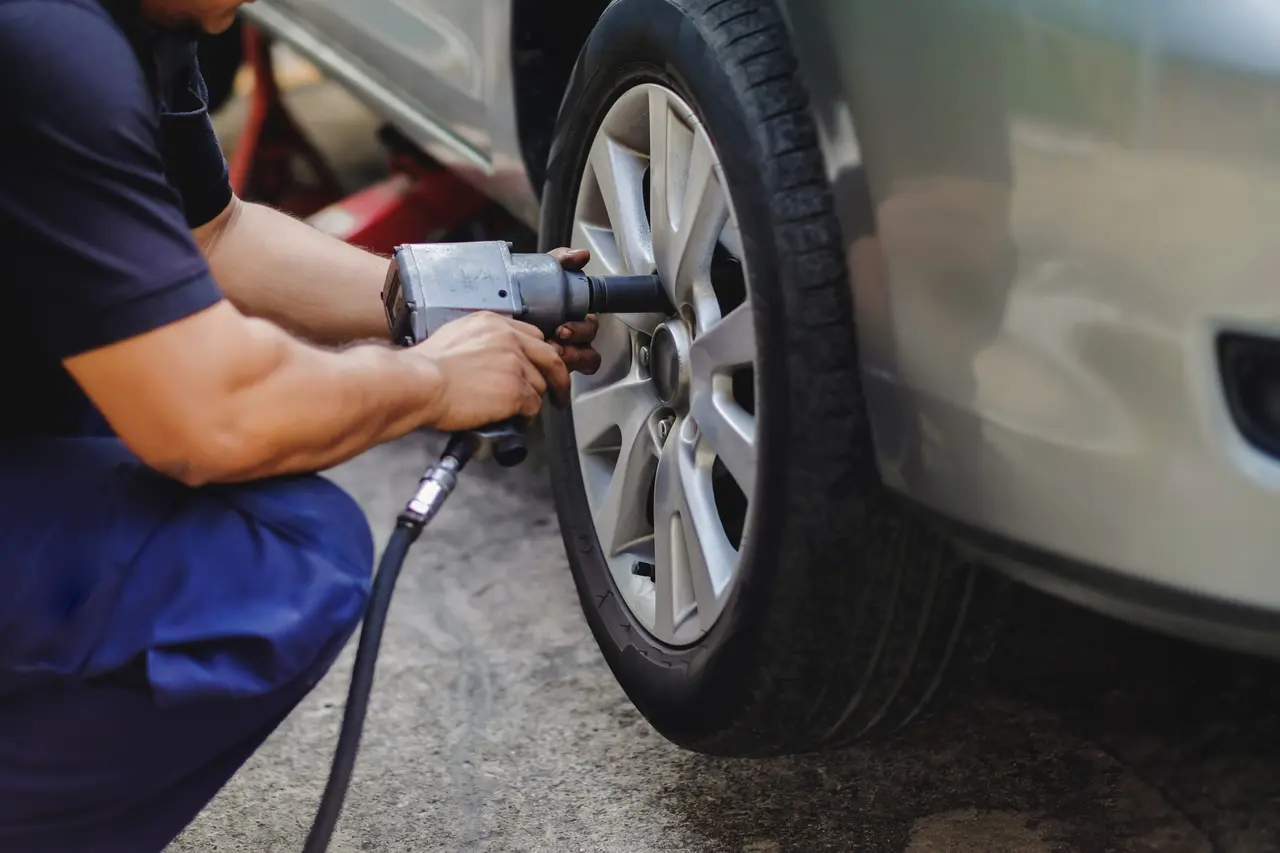Tire maintenance is crucial for safe driving and extending the lifespan of your tires. From proper inflation to regular inspections, staying on top of tire care can prevent accidents and save you money in the long run. In this guide, we’ll cover common questions about tire pressure, tread wear, and expert advice from Pete Nelson Automotive for maximizing the durability of your tires.
Understanding the Importance of Tire Maintenance
Proper tire maintenance is not just about keeping your tires looking good—it’s a critical aspect of road safety. Ensuring your tires are inflated to the correct pressure levels can enhance your vehicle’s handling and fuel efficiency. Tire pressure affects your vehicle’s traction and braking, especially in adverse weather conditions like rain or snow.
Regularly inspecting your tires for signs of wear and tear is equally important. Tread depth, tire rotation, and alignment play key roles in maintaining the longevity of your tires. Neglecting these maintenance tasks can not only pose a safety risk but also lead to premature tire wear and the need for electrical system repair.
In addition to safety concerns, proper tire maintenance can save you money in the long term. Well-inflated tires experience less resistance on the road, leading to improved fuel efficiency. By taking care of your tires, you can avoid costly repairs and replacements, ultimately extending the lifespan of your vehicle’s electrical system.
Common Questions and Expert Answers on Tire Services
1. What is the correct tire pressure for my car?
The correct tire pressure for your vehicle is specified by the manufacturer and can typically be found on a sticker inside the driver’s door or in the owner’s manual. It’s important to maintain the right tire pressure to ensure safety, optimize fuel efficiency, and extend the life of your tires. Under-inflated tires can lead to poor handling and increased tire wear, while over-inflated tires can reduce traction and make your ride less comfortable. If you’re unsure about your tire pressure or need help maintaining it, contact Pete Nelson Automotive at 623-974-4723 for professional assistance.
2. How often should I check my tire pressure?
It’s advisable to check your tire pressure at least once a month and before long trips. This is because tires naturally lose air over time, and temperature changes can also affect tire pressure. Properly inflated tires help your car run more efficiently, provide better handling, and improve fuel economy. Checking tire pressure regularly can prevent potential issues and ensure your vehicle is safe to drive.
3. How do I know when my tires need to be replaced?
Tires should be replaced when the tread depth falls below 2⁄32 of an inch, which can be measured using a tread depth gauge or the penny test. Additionally, if you notice visible signs of damage such as cuts, punctures, or cracks, it’s time for a replacement. Uneven wear patterns, often caused by misalignment or improper inflation, also indicate that your tires need to be replaced. Regular inspections can help you determine when it’s time for new tires. For a professional assessment and replacement, visit Pete Nelson Automotive or call us at 623-974-4723.
4. What are the signs of improper tire alignment?
Improper tire alignment can manifest as uneven tire wear, the vehicle pulling to one side, a crooked steering wheel when driving straight, and unusual vibrations. Correcting alignment issues promptly can prevent further damage to your vehicle and ensure a smoother, safer ride. Regular alignment checks, especially after hitting a pothole or curb, are crucial for maintaining proper tire health.
5. How often should I rotate my tires?
Tire rotation should generally be done every 5,000 to 7,500 miles to ensure even wear and extend the lifespan of your tires. Rotating your tires involves changing their positions on the vehicle to distribute wear more evenly across all four tires. This helps prevent uneven tread wear, which can lead to reduced performance and potential safety hazards. If you prefer a professional service to handle tire rotations, Pete Nelson Automotive offers comprehensive tire care services. Call us at 623-974-4723 to schedule an appointment.
6. What causes tire blowouts and how can I prevent them?
Tire blowouts can be caused by under-inflation, overloading the vehicle, hitting potholes or debris, and general tire wear and tear. To prevent blowouts, regularly check and maintain proper tire pressure, avoid overloading your vehicle, and inspect your tires for any signs of damage or excessive wear. Routine maintenance and inspections can help you catch potential issues before they become serious problems.
7. How can I improve my tire lifespan?
Improving your tires’ lifespan involves maintaining the correct tire pressure, rotating them regularly, ensuring proper alignment and balancing, and avoiding aggressive driving habits. Regular inspections for any signs of damage or uneven wear can also help prolong the life of your tires. Proper tire care not only extends their lifespan but also enhances your vehicle’s performance and safety.
8. What is the difference between all-season, summer, and winter tires?
All-season tires are designed to provide balanced performance in various conditions, offering moderate traction in wet, dry, and light snowy conditions. Summer tires are optimized for warm weather, providing excellent handling and performance on dry and wet roads but are not suitable for winter conditions. Winter tires, on the other hand, offer superior traction in snowy, icy, and cold conditions due to their specialized rubber compounds and tread patterns designed for extreme cold. Choosing the right type of tire depends on the typical driving conditions you encounter. For help choosing the right tires for your vehicle, consult Pete Nelson Automotive where we sell all the quality brands.
9. How do I check my tire tread depth?
To check your tire tread depth, you can use a tread depth gauge or perform the penny test. Insert a penny into the tire tread with Lincoln’s head upside down; if you can see the top of his head, it means the tread is too worn and it’s time to replace the tire. Regularly checking your tread depth is crucial for maintaining good traction and ensuring safe driving conditions. For a thorough tread depth check, visit Pete Nelson Automotive or give us a call at 623-974-4723.
10. What should I do if my tire pressure monitoring system (TPMS) light comes on?
If your TPMS light comes on, it indicates that one or more of your tires is significantly under-inflated. You should check your tire pressure immediately and inflate any under-inflated tires to the recommended pressure. If the TPMS light remains on after adjusting the tire pressure, it could indicate a problem with the sensor or the tire itself. In such cases, have your tires inspected by a professional at Pete Nelson Automotive to ensure there are no serious issues. Regular maintenance and timely response to TPMS alerts can prevent potential safety hazards on the road.
Expert Solutions for Extending Tire Lifespan
Pete Nelson Automotive recommends maintaining the proper tire inflation specified by your vehicle manufacturer for optimal performance and safety. Underinflated tires can lead to accelerated tread wear and decreased fuel efficiency, while overinflated tires may result in a harsher ride and uneven wear patterns that require electrical system repair.
Regular tire rotations are essential for promoting even tread wear across all tires. Front tires tend to wear differently than rear tires due to steering and power distribution dynamics. Rotating your tires at regular intervals—typically every 5,000 to 7,000 miles—can extend the lifespan of your tires and improve overall vehicle performance.
Maintaining proper wheel alignment is another key factor in maximizing tire lifespan. Misaligned wheels can cause uneven tire wear and affect vehicle handling. If you notice your vehicle pulling to one side or experiencing steering vibrations, it’s crucial to have your alignment checked and adjusted to prevent unnecessary strain on your car.
The Road to Tire Maintenance Success
Ensuring your tires are in optimal condition is more than just a safety concern—it’s a smart financial investment. By following the tips and expert advice shared in this guide, you can maintain your tires effectively and potentially avoid costly repairs or replacements down the road. For any tire services or questions, Pete Nelson Automotive is here to help. Contact us at 623-974-4723 for all your tire needs.



